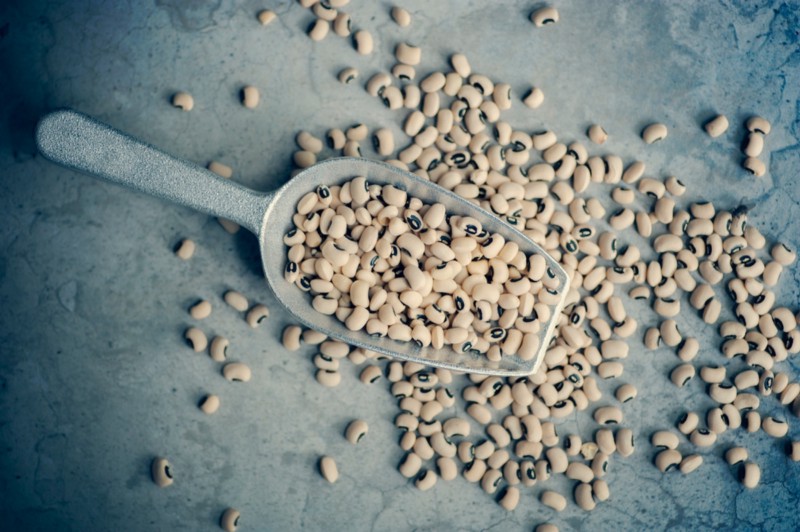
Lectins have become embroiled in more than a bit of controversy. We spoke with registered dietitian, Eliza Savage on what lectins are and what they do
What are lectins?
Eliza Savage: Lectins are proteins found in many foods, including fruits and vegetables. Foods high in lectins are legumes, grains, and nightshades. In plants, lectins are part of the defense system against bacteria or fungi. In the body, lectins bind to carbohydrates, forming glycoproteins, which perform various functions — both good and bad.
Why have lectins become such a hot topic?
ES: Lectins have become the dietary demon du jour due to alarming media coverage, and Dr. Steven Gundry’s book, The Plant Paradox. According to Dr. Gundry, lectins are the main danger in the American diet, and by removing them, people can improve their health and lose weight. The main concern is that lectins interfere with proper absorption of vitamins, minerals, and key proteins.
Why are people starting a lectin-free diet?
ES: People have recently started lectin-free diets as lectins can cause digestive distress in some individuals (and those individuals have got noisier!). They’ve been pegged as harmful anti-nutrients, meaning they may block absorption of some nutrients. Media outlets have amplified the claims that lectins are highly-inflammatory and can lead to autoimmune issues, “leaky gut”, and increased risk of chronic disease.
The lectin-free movement is a trend. Removing foods high in lectins from your diet can be life-changing for some, but most people will be fine, and actually healthier, for consuming these plant-based foods!
But we’ve heard that lectins are toxic?
ES: Lectins can be toxic, but only if eaten raw. For cooked, lectin-rich foods, the jury is still out! If you don’t experience any digestive distress (gas, bloating, acid reflux, diarrhea, constipation, vomiting, etc.) with foods high in lectin, then there’s no need to avoid them.
It’s important to note that portion control is critical with lectin-rich, high-fiber whole grains and plant-based proteins, such as lentils and beans. Start with a small portion (¼ cup) and work your way up!
If you experience problematic symptoms, first look at how you are cooking the high lectin foods. It may be the garlic and onions that you use to cook them in (not the grain or legume) that affects you.
I always recommend soaking and sprouting your beans and legumes prior to consuming. Sprouting lentils, or soaking them in water for 2–3 days (change the water every day) increases the amount of amino acids, vitamins, and minerals that the body can absorb, because this process of sprouting reduces the lectins.
I also like adding a piece of kombu (seaweed) to the pot when I cook lentils or beans. It helps reduce the gas-producing properties of the lentils or beans, making them easier to digest. Kombu also increases the mineral and nutrient value, as well as the taste!
Are there health benefits to lectins?
ES: Yes, lectins are a part of a healthy, balanced diet, as they are generally found in high fiber, plant-based proteins, acting as prebiotics (feeding the probiotics that live in the gut). Research is being conducted into using lectins to help identify and diagnose cancer. They are also being studied for their potential to slow down the rate that cancer cells multiply. Splendid Spoon meals are full of lectin-rich foods, like legumes, beans, and quinoa.
There’s ample evidence on lectin-containing foods such as whole grains, beans, and legumes, and their various health benefits. Soluble fiber lowers blood lipids and can prevent cholesterol reabsorption in the gut. Prebiotics in these foods promotes good gut bacteria by feeding the probiotics. Various studies show improvement in insulin sensitivity, blood pressure, and cholesterol with those who eat whole grains (which contains lectins).
If we’re looking to lose weight, can we still eat lectins?
ES: Yes! Lectin rich foods, especially plant-based proteins such as lentils and beans, are fabulous foods for weight loss in appropriate portions. These are high fiber, highly nutritious foods that fill you up while providing adequate protein. Did you know that ½ cup of lentils provides 24g of protein? That’s more than three whole eggs.
I love Splendid Spoon’s products because they’re the perfect portion to keep you full without crazy additives or processed ingredients. These delicious meals help promote weight loss when incorporated as part of a healthy, balanced diet.
In my opinion, we live in a world where almost everything could be identified as a “threat to health” or “dangerous”. One could go crazy with all the “no-no’s” to avoid. Splendid Spoon meals are made of simple, plant-based ingredients: there’s no processed ingredients you can’t pronounce or read. If they work for you (which I hope they do), eat up!
Looking to try one of the new grain bowls? Get started with a weekly delivery now!
If you’re already a customer and want to add them to your Lunch delivery, head into My Account >> My Deliveries >> and add them into your lunch routine!
Questions? Email us at hello@splendidspoon.com
